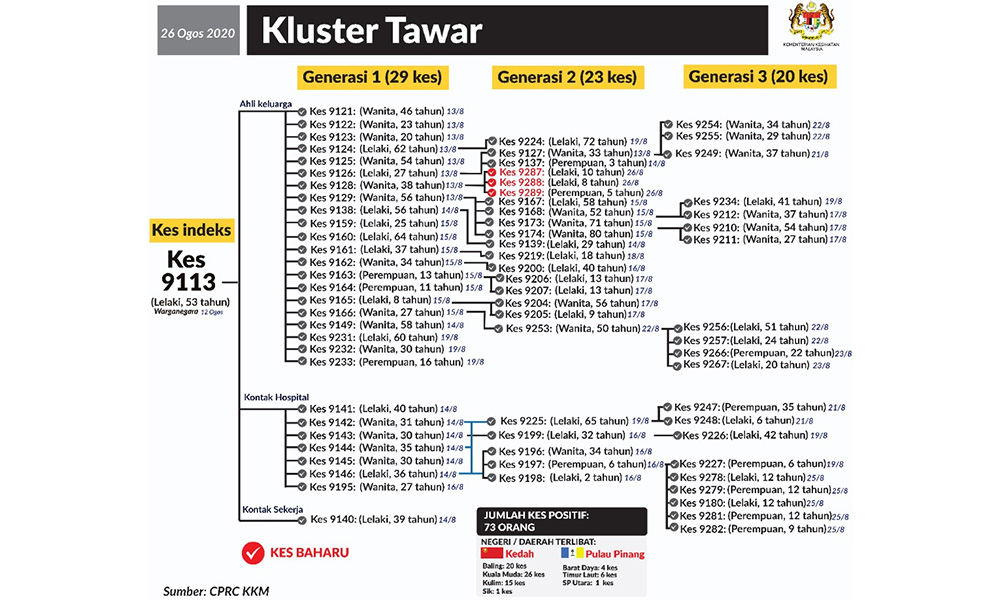COVID-19 | Of the 73 cases in the Tawar cluster, 21 are children aged 18 and under. This constitutes almost 29 percent of the cluster size thus far.
Asked today if child patients’ immune systems risked being compromised due to the virus, Health Ministry director-general Dr Noor Hisham Abdullah assured that the severity of the cases remained under control.
“At the moment, we do know 21 children are positive from a total of 73 positive cases. But none of the children have been admitted into the intensive care unit (ICU) for treatment.
“Which means (although) in terms of their susceptibility to infection, there is no doubt about that, but in terms of (the virus) spread or even severity of the infection, they are still being treated in the hospital.
“So we are monitoring them closely and we hope they are able to recover from this infection,” he said during a press conference in Putrajaya this evening.
Studies have found a sharp drop in the antibody levels of patients who have recovered from Covid-19, even from mild strains of the virus.
Earlier, Noor Hisham shared that the ministry had found the highly infectious D614G mutation in four samples taken from Tawar cluster patients.
This mutation was also found in the Sivagangga cluster.
Both clusters are located in the northern state of Kedah.
The Tawar cluster did not register any new cases in the past 24 hours.
Recovered patients not immune
Asked later about the threat that Covid-19 posed to the community, Noor Hisham shared that studies by the ministry had found that recovery from the virus did not guarantee immunity from it.
He explained that recovered patients were found to have very low levels of immunoglobulins, also known as antibodies.
“When you first get the virus infection, you get the IgM (antibodies) first and then followed by IgG (antibodies).
“Usually IgG will last a long time, but we realised after eight weeks there is a decrease in the IgG. From our study in one of the groups infected in the school, we looked into the serology tests and IgG (and) we only found 20 percent after three months,” he said.
“(This means) they can get reinfected again, (there is) the possibility of reinfection because you don’t have the antibodies to fight the virus,” he added.


